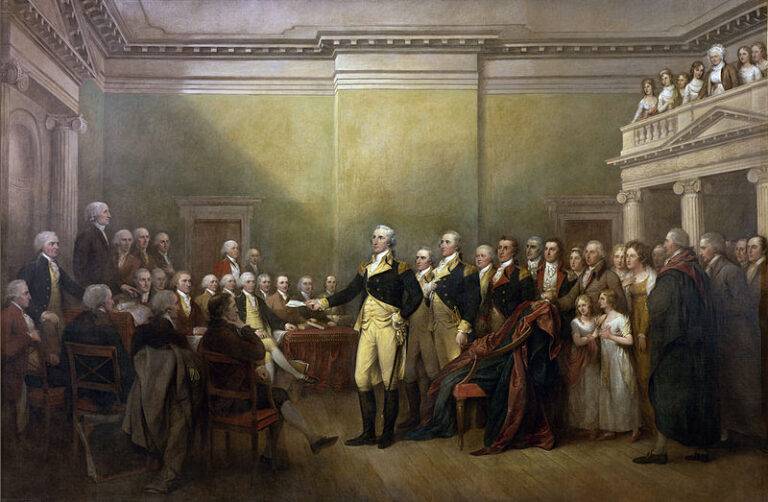1282: The last native Prince of Wales is killed by the forces of England’s Edward I at the Battle of Orewin Bridge, thus becoming Llywelyn the Last. With the extinction of the Welsh line of succession, Edward then assumed the title Prince of Wales for the heir of the British throne.
1287: A dyke ruptures on the North Sea approaches near Texel, creating a flood that completely submerges the marshes and lakes of the north-central Netherlands. In Friesland province scores of towns and cities are demolished, with over 50,000 deaths. The Saint Lucia Flood actually created a new body of water, the Zuiderzee, that which leads to the growth of Amsterdam on the Amstel River.

1545: Opening prayers at the Council of Trent, called by Pope Paul III in response to calls for administrative and spiritual reform within the Roman Catholic Church. The Council of Trent (Latin: Concilium Tridentinum),was held between 1545 and 1563 in Trent, or Trento, in northern Italy. It was an ecumenical council of the Catholic Church. Prompted by the Protestant Reformation and the 1517 publication of Luther’s 95 Theses, it has been described as the embodiment of the Counter-Reformation. The consequences of the Council were also significant as regards the Church’s liturgy and practices. During its deliberations, the Council made the Vulgate the official example of the Biblical canon and commissioned the creation of a standard version, although this was not achieved until the 1590s. In 1565, a year after the Council finished its work, Pius IV issued the Tridentine Creed (after Tridentum, Trent’s Latin name) and his successor Pius V then issued the Roman Catechism and revisions of the Breviary and Missal in, respectively, 1566, 1568 and 1570. These, in turn, led to the codification of the Tridentine Mass, which remained the Church’s primary form of the Mass for the next four hundred years.
1577:Sir Francis Drake sets out from Plymouth with a fleet of four ships on a voyage that would eventually lead to the circumnavigation of the globe.
1725: Birth of Virginian George Mason (d.1792), a key intellectual partner of Patrick Henry, James Madison and Thomas Jefferson, and a crucial voice of ensuring the rights of citizens during the development of a functioning, but limited republican government in the newly independent United States. Mason was the driving force for insisting on the inclusion of the Bill of Rights as integral to the Constitution.
1803: Birth of French composer Hector Berlioz (d.1869), a romanticist who pioneered the use of huge orchestras- upwards of 100 pieces (and once with over a thousand)- and dramatic musical themes.
1806: Birth of Stand Waite (d.1871), tribal Chief of the Cherokee nation in Georgia, colonel of Confederate cavalry during the Civil War, and the only Native American to be made general officer on either side of the war. Waite’s forces remained effective and active in Arkansas and east Texas throughout the war. With his surrender after a battle in the Indian Territory in late June 1865, he became the last Confederate leader to surrender his “land” forces to the Union. Captain James Waddell of CSS Alabama bears the honor of being the last Confederate to surrender; however, he surrendered to the British, not the hated Union.
1862: General Ambrose Burnside orders the Union Army of the Potomac to cross the Rappahannock River at the Battle of Fredericksburg and make a frontal assault across a mile of open ground against elevated and fortified Confederate positions on Marye’s Heights just south of town. When darkness fell, the Confederate positions were un-moved, and the field below the heights was littered with Union dead and wounded. The Union slaughter is the most lopsided in the entire course of the war, 12,653 (1,284 killed) to the Confederate 5,377 (608 killed).
1882: Birth of Firoello LaGuardia (d.1947), the three-term mayor of NYC during the 30s and 40s. A “moderate Republican” with a strong populist bent, the 5’0” LaGuardia made an early name for himself when he launched a crusade to throw organized crime bosses out of the city. He leveraged Federal funding to build roads, subways, airports, city buildings in NYC.
1937: Japanese forces expel the Chinese army from the port city of Nanking. This is followed by a week of destruction that reduces the city and its population to rubble. This became known as The Rape of Nanking, and was one of the causes of the increasing friction between the Japanese Empire and the United States.
1941: Cascading war declarations continue as a direct result of the Japanese attack on Pearl Harbor last week. The United Kingdom declares war on Bulgaria; Hungary and Romania declare war on the United States; India declares war on Japan.




Ah, yes, Virginia’s George Mason and the so-called “Bill of Rights, which really is a “Bill of Goods,” defined as ” something intentionally misrepresented: something passed off in a deception or fraud,” since those so-called rights can be stripped from you just like that by the stroke of a corrupt judge’s pen, which takes us to pp.209-10 of “Miracle At Philadelphia – The Story of the Constitutional Convention May to September 1787” by Catherine Drinker Bowen, where we find George Mason quoted as follows:
Just who it was that suggested the Federal District be ten miles square is hard to determine.
But the phrase caught on, to be used the next winter with much effect by the anti-Constitutionalists.
George Mason (of Virginia), who in the Federal Convention was mild enough concerning the proposals for a national capital, at home in Virginia developed a phobia on the subject.
Think – he told his state convention for ratification – only think of giving Congress an unlimited power over such a federal region.
“This ten miles square may set at defiance the laws of the surrounding states and may …… become the sanctuary of the blackest crimes!”
“Here the federal courts are to sit …..”
“What sort of a jury shall we have in the ten miles square?”
Mason answered his own question:
“The immediate creatures of the government.”
“What chance will poor men get?”
“Here the greatest offender may meet protection!”
“If any of the officers or creatures (of the national government) should attempt to oppress the people or should actually perpetrate the blackest deed, he has nothing to do but get into the ten miles square.”
end quotes
How prescient his vision was, it seems.
As to the “Bill of Rights,” Atticus had this to say concerning that empty document in his “Atticus III” in the Independent Chronicle and the Universal Advertiser, Boston, November 22, 1787, as follows:
The Hon. E[lbridge] G[erry] and others, complain, that the system has not the security of a bill of rights.
That series of propositions commonly called a bill of rights, is taken out of lawbooks, and is only an extract of the rights of persons.
Now let us suppose, that it stands in a law-book, which is appealed to, as an authority, in all the Courts of judicature, or is tacked (without pains or penalty annexed to the violation of it) as a preface to the Constitution.
In which case is it likely to afford the greatest security to the rights of persons?
Let the unbiased judge.
On this point we may appeal to fact.
There is a Commonwealth, with which we are not wholly unconnected, which hath a bill of rights prefixed to its Constitution.
Yet ask those of either of the great parties, into which that State hath lately been divided, if this bill of rights hath not been frequently violated?
If you confide in the zealots of each party, will you not be ready to conceive, that the actual Legislators have had as poor an opinion of the bill of rights, as Cromwell had of Magna Charta?
If you speak to the moderate men in that same State, they will perhaps shrug their shoulders, and shake their heads, and give you no answer.
When the powers to be exercised, under a certain system, are in themselves consistent with the people’s liberties, are legally defined, guarded and ascertained, and ample provision made for bringing to condign punishment all such as shall overstep the limitations of law, it is hard to conceive of a greater security for the rights of the people.
end quotes
And in his “Speech to the Pennsylvania Conventions, morning,” James Wilson had this to say on the subject of a “Bill of Rights” on December 04, 1787:
I shall take this opportunity of giving an answer to the objections already urged against the Constitution; I shall then point out some of those qualities that entitle it to the attention and approbation of this Convention; and, after having done this, I shall take a fit opportunity of stating the consequences which, I apprehend, will result from rejecting it, and those which will probably result from its adoption.
I have given the utmost attention to the debates, and the objections that, from time to time, have been made by the three gentlemen who speak in opposition.
I have reduced them to some order, perhaps not better than that in which they were introduced.
I will state them; they will be in the recollection of the house, and I will endeavor to give an answer to them: in that answer, I will interweave some remarks, that may tend to elucidate the subject.
A good deal has already been said concerning a bill of rights.
I have stated, according to the best of my recollection, all that passed in Convention relating to that business.
Since that time, I have spoken with a gentleman, who has not only his memory, but full notes that he had taken in that body, and he assures me that, upon this subject, no direct motion was ever made at all; and certainly, before we heard this so violently supported out of doors, some pains ought to have been taken to have tried its fate within; but the truth is, a bill of rights would, as I have mentioned already, have been not only unnecessary, but improper.
In some governments, it may come within the gentleman’s idea, when he says it can do no harm; but even in these governments, you find bills of rights do not uniformly obtain; and do those states complain who have them not?
Is it a maxim in forming governments, that not only all the powers which are given, but also that all those which are reserved, should be enumerated?
I apprehend that the powers given and reserved form the whole rights of the people, as men and as citizens.
I consider that there are very few who understand the whole of these rights.
All the political writers, from Grotius and Puffendorf down to Vattel, have treated on this subject; but in no one of those books, nor in the aggregate of them all, can you find a complete enumeration of rights appertaining to the people as men and as citizens.
There are two kinds of government — that where general power is intended to be given to the legislature, and that where the powers are particularly enumerated.
In the last case, the implied result is, that nothing more is intended to be given than what is so enumerated, unless it results from the nature of the government itself.
On the other hand, when general legislative powers are given, then the people part with their authority, and, on the gentleman’s principle of government, retain nothing.
But in a government like the proposed one, there can be no necessity for a bill of rights, for, on my principle, the people never part with their power.
Enumerate all the rights of men!
I am sure, sir, that no gentleman in the late Convention would have attempted such a thing.
I believe the honorable speakers in opposition on this floor were members of the assembly which appointed delegates to that Convention; if it had been thought proper to have sent them into that body, how luminous would the dark conclave have been! — so the gentleman has been pleased to denominate that body.
Aristocrats as they were, they pretended not to define the rights of those who sent them there.
We ask, repeatedly, What harm could the addition of a bill of rights do?
If it can do no good, I think that a sufficient reason to refuse having any thing to do with it.
But to whom are we to report this bill of rights, if we should adopt it?
Have we authority from those who sent us here to make one?
It is true, we may propose as well as any other private persons; but how shall we know the sentiments of the citizens of this state and of the other states?
Are we certain that any one of them will agree with our definitions and enumerations?
end quotes
So there, for what it is worth, is some background on that subject.